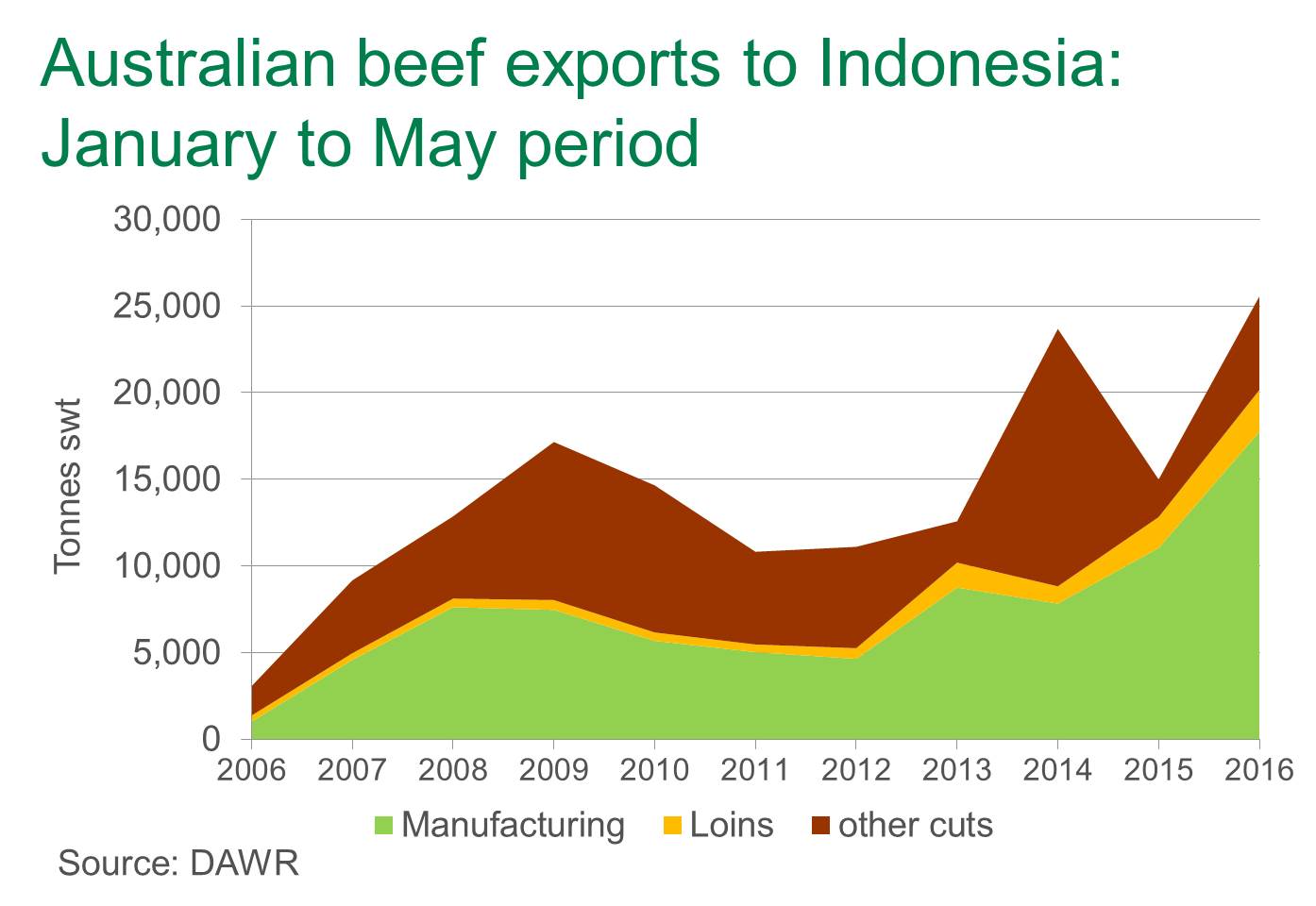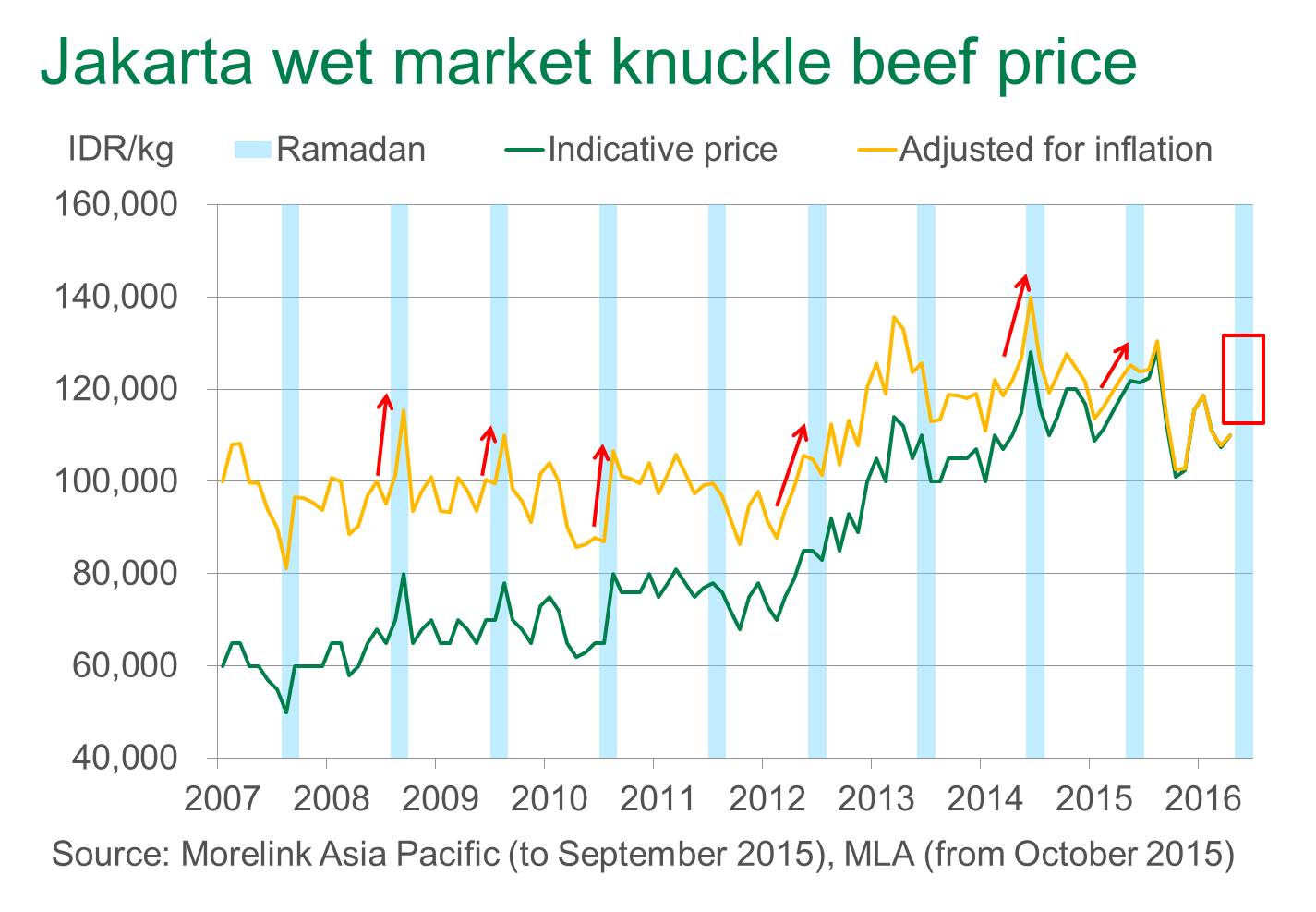Subscribe to The Weekly e-newsletter
For in-depth red meat market news, information and analysis.
Strong demand for Aussie beef in Indonesia
09 June 2016
Australia exported 25,560 tonnes swt of beef to Indonesia during the first five months of this year (January to May), registering a new volume record for the period (Department of Agriculture and Water Resources).
Relaxation of import protocols in December 2015 by the Indonesian government allowed more beef cuts to enter the market, resulting in the recovery and further growth of exports from Australia.

In particular, Australian beef exports to Indonesia surged in May, with a monthly record volume shipped in the lead up to Ramadan (6 June – 5 July) – a peak period for beef consumption.

Historically, beef prices spike during Ramadan in response to strong demand –illustrated by the red arrows in the figure above. Over the past eight years, wet market prices (using the Jakarta wet market knuckle indicator) during Ramadan have averaged 8% higher than the preceding six months.
This year, however, trends during the first week of the religious period have been mixed. Jakarta wet market prices have remained mostly steady, with some markets up just IDR 5,000/kg (A50¢/kg) on May values. Other regions, such as Kalimantan, have seen more significant jumps of up to IDR 30,000/kg (A$3/kg).
Over the next few weeks market forces may see a more typical price rise eventuate, putting the Jakarta wet market knuckle indicator in the range of IDR 120,000-130,000/kg (A$12-13/kg) – illustrated by the red box in the figure above.
Beef supplies also lift over the Ramadan period with increased sales of fed cattle. In addition to increased boxed beef exports to the market, Australia feeder cattle exports to Indonesia were 22% above the five-year average in the first four months of 2016, at just over 189,000 head.
While some markets are yet to show a significant increase, beef prices in Indonesia continue to track at historically high levels.


